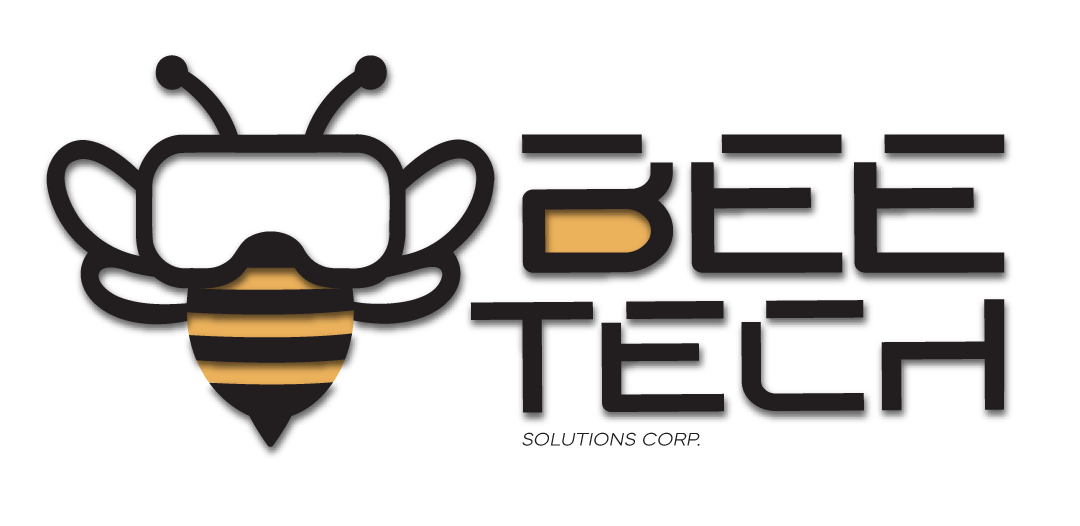Industries We Transform with Immersive Technology
At Bee Tech Solutions Corp, we apply virtual reality (VR), augmented reality (AR), artificial intelligence (AI), and high-definition 3D production to address real world needs across key sectors. We create solutions that educate, train, communicate, and inspire. These are the industries where we generate the greatest impact:
We design experiences that turn learning into an unforgettable journey—enhancing retention, motivation, and autonomous exploration.
- Interactive platforms for schools and universities
- Educational video games tailored to each academic level
- Medical and technical simulators with real-time feedback
- AI-powered avatars serving as personalized tutors or guides
Ideal for institutions looking to stand out through educational innovation.
We create technological tools that enrich tourism and cultural outreach, increasing visitor engagement and destination visibility.
- 360° or VR virtual tours for hotels, islands, routes, and experiences
- Augmented reality (AR) for museums, parks, or historic sites
- 3D destination promotions for trade shows, social media, or tourism websites
Turn promotion into a high-impact immersive experience.
We develop solutions aimed at enhancing productivity, training, and the presentation of complex products.
- Immersive training for protocols, processes, or machinery operation
- VR/AR product presentations with real-time interaction
- Machinery and industrial environment simulators
- AI virtual assistants for sales and technical support
Speed up internal processes and boost your sales team's effectiveness.
We support medical and educational institutions with virtual environments that enhance clinical training, patient communication, and knowledge management.
- Medical emergency simulations for professional training.
Bee Tech Solutions Corp
Statistics on the Impact of Virtual Reality in Hotels and Tourism
The implementation of virtual reality (VR) experiences in hotels, agencies, and tourist destinations not only creates differentiation but also directly improves bookings, customer stay duration, and loyalty. Here are the key facts:

- Up to 135% more bookings in hotels offering virtual tours or immersive content. (Source: HotelTechReport)
- 80% of users who experience a VR tour are more willing to pay a higher rate for that room or experience. (Source: Expedia Insights)
- Customer satisfaction increases by 30% when the hotel offers VR entertainment, whether in rooms or common areas. (Source: Statista 2024)
- The use of VR stations in lobbies or suites has increased guest stay time by 20% and positive reviews by 40%. (Source: Skift Research)
- 74% of tourists would be more willing to visit a destination after experiencing it in VR. (Source: Google Travel Trends)
- Agencies that integrate VR into their physical spaces or web campaigns report up to a 300% increase in sales conversion. (Source: Think with Google)
- Platforms offering 360° tours or interactive experiences increase browsing time by 400%, improving the likelihood of direct sales. (Source: Forbes Travel 2023)
- 67% of millennials prefer to make travel decisions after experiencing immersive digital content. (Source: TripAdvisor Insights)
- Students retain 75% more content learned through VR compared to traditional methods. (Source: PwC)
- Using VR in the classroom increases student engagement by 94%. (Source: EdTech Magazine)
- Educational platforms with personalized AI boost student performance by 32%. (Source: McKinsey)
- 68% of educators believe that AR and VR significantly increase student motivation. (Source: EdSurge)
- 70% of consumers are more likely to purchase if they can visualize the product in AR first. (Source: Shopify)
- Stores with immersive experiences increase dwell time by 150%. (Source: Deloitte)
- Brands using VR marketing boost brand recognition by 200%. (Source: Nielsen)
- Personalized experiences with AI increase e-commerce conversions by 300%. (Source: Forbes Tech Council)
- VR therapies show a 44% reduction in anxiety. (Source: APA)
- Medical simulations in VR improve clinical skills retention by 80%. (Source: Stanford Medicine)
- AI in telemedicine reduces medical response times by 60%. (Source: HIMSS)
- 72% of patients prefer technology-assisted care for its speed and accuracy. (Source: HealthTech Magazine)
- VR property presentations increase sales closing rates by 85%. (Source: Matterport)
- 94% of homebuyers want to see VR tours before visiting properties in person. (Source: National Association of Realtors)
- AR/VR tools in architecture reduce design errors by 40%. (Source: Autodesk Insights)
- BIM models with AR improve field efficiency by up to 30%. (Source: McGraw-Hill Construction)
- VR training in factories reduces training time by 60% and errors by 40%. (Source: PwC)
- VR maintenance simulations increase workplace safety by 43%. (Source: OSHA/VR Safety Study)
- AI for failure prediction reduces downtime by 50%. (Source: IBM Watson Industry AI)
- Collaborative robots (cobots) increase assembly productivity by 30%. (Source: Boston Consulting Group)
- Immersive culinary experiences in VR/AR increase purchase intent for gourmet products by 120%. (Source: Culinary VR Lab)
- Restaurants with AR menus increase average ticket size by 25%. (Source: Hospitality Net)
- Virtual tastings with VR storytelling achieve 80% brand retention, double that of average in-person tastings. (Source: Wine & Tech)
- Culinary schools using VR improve technical skills by 70% before real practice. (Source: VR EdTech for Culinary Arts)